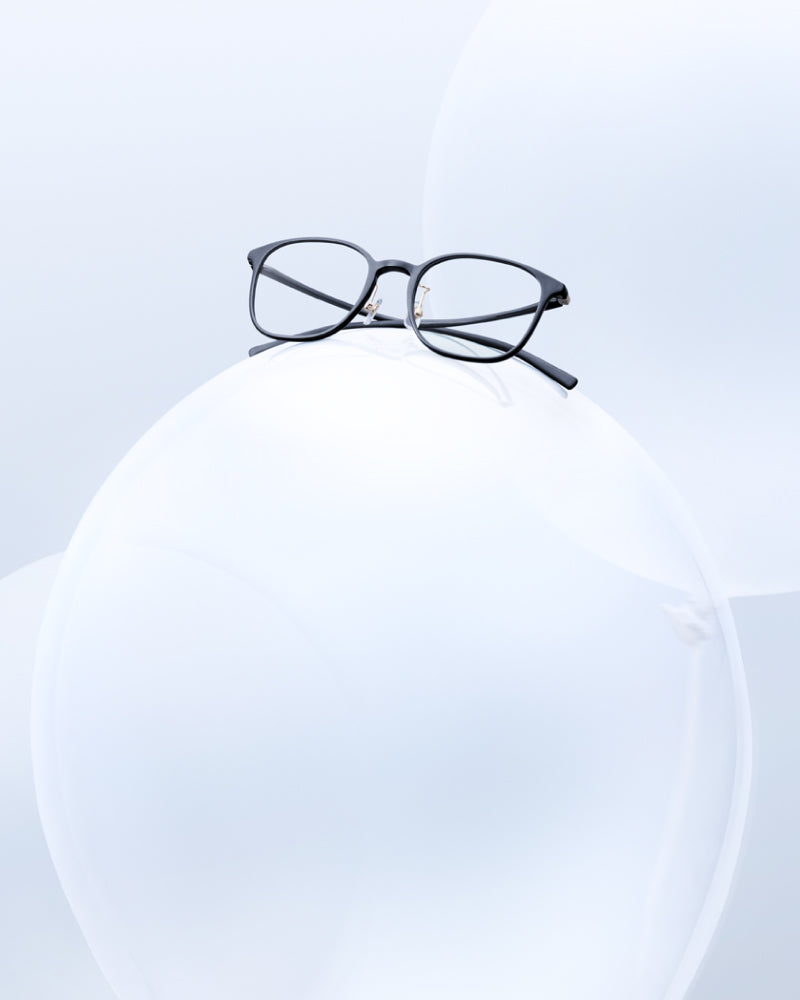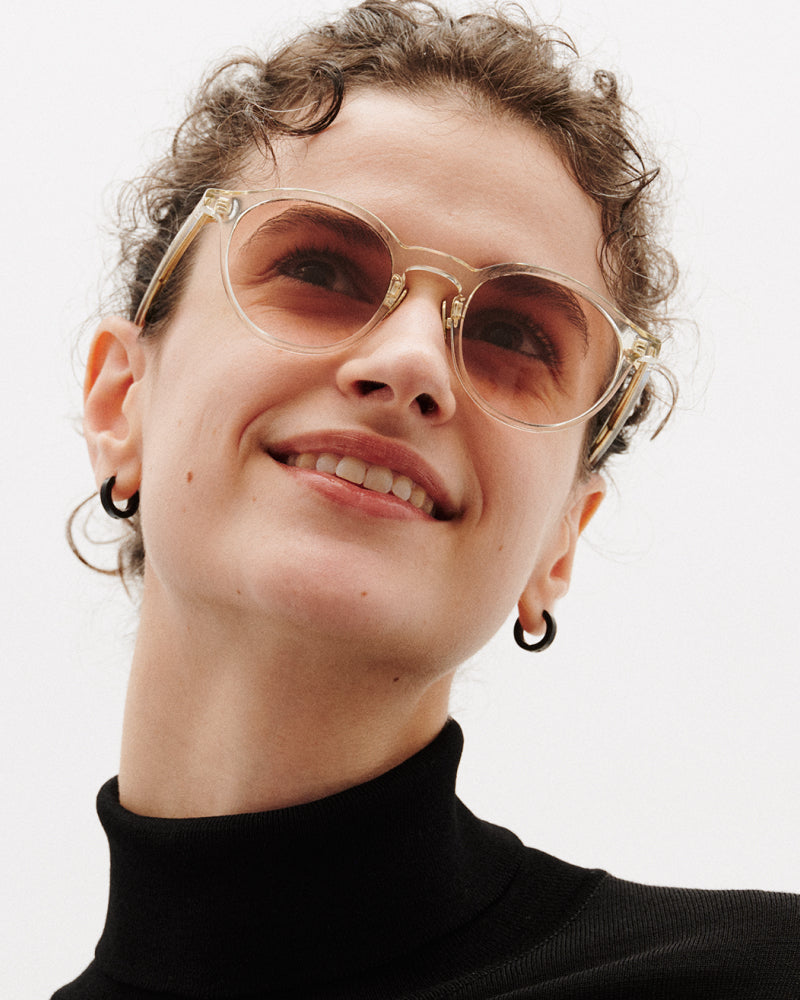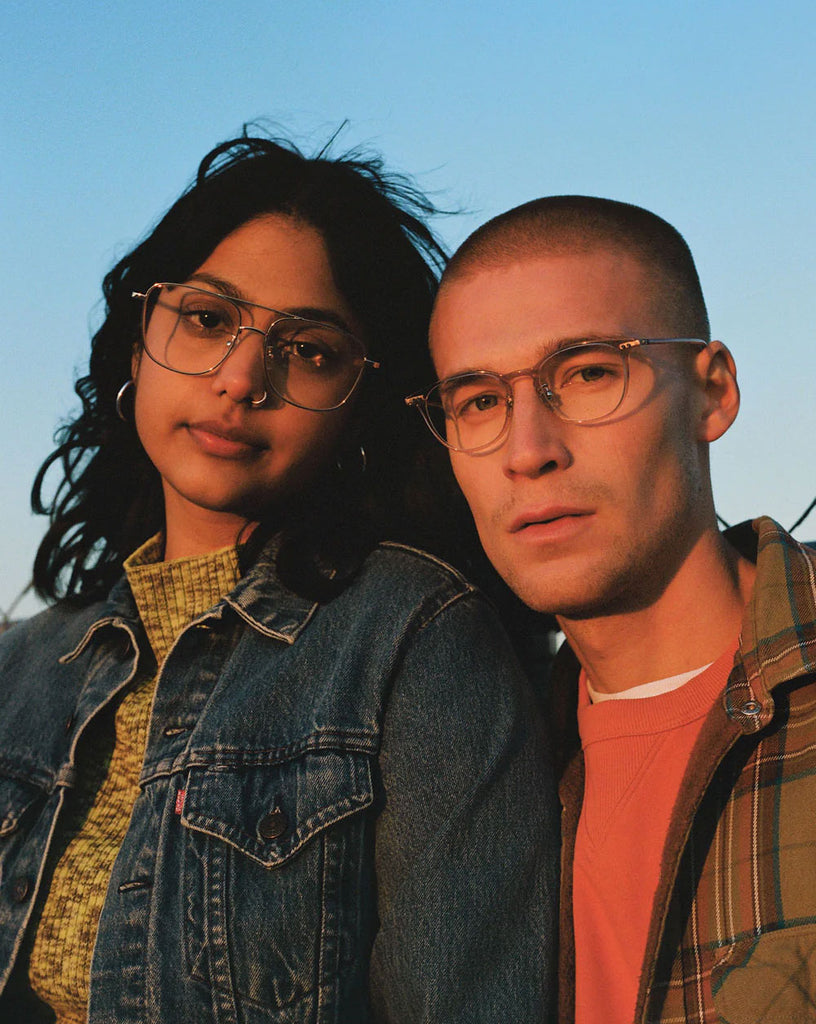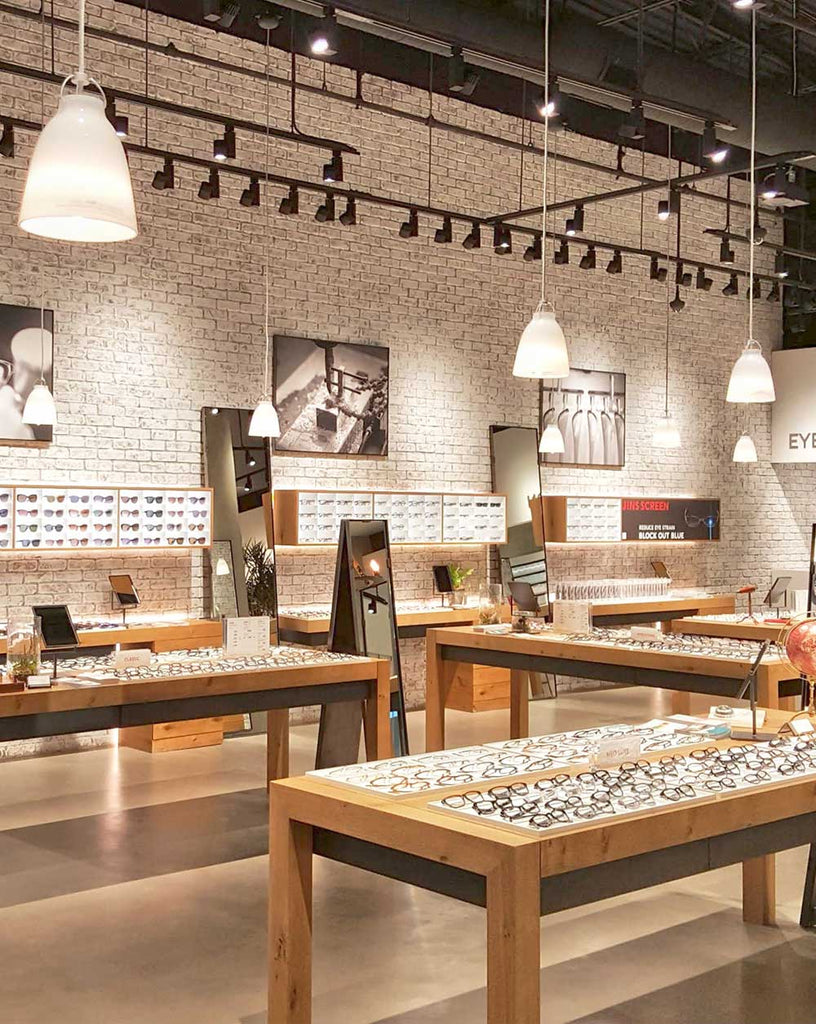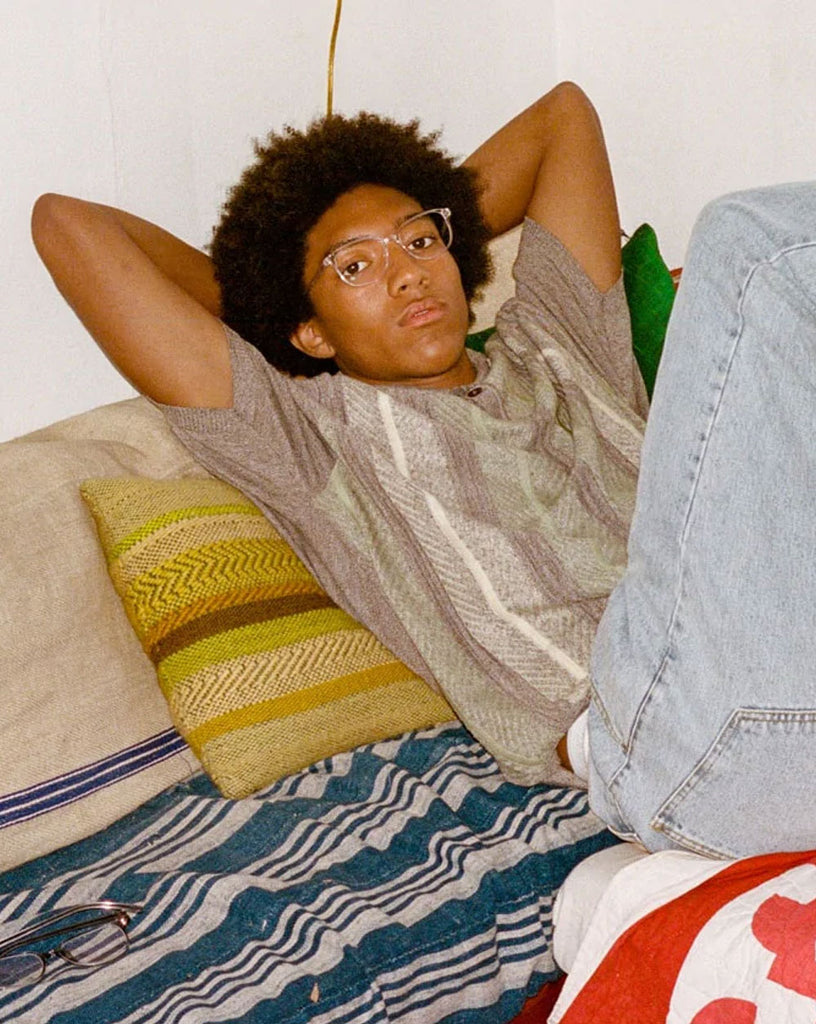BLUE LIGHT GLASSES: IS IT HEALTHY TO WEAR THEM ALL DAY?
Protecting yourself against digital eye strain is an important priority in our multiscreen era. Specialized eyewear like blue light glasses — designed to absorb excess blue light from the many kinds of digital screens in our home and office spaces — can help you enjoy a life with less eye strain and a healthier sleep cycle. But the question remains as to whether it's healthy to wear them all the time, or whether it's best to use them only for certain kinds of tasks.
WHAT BLUE LIGHT LENSES DO AND HOW THEY PROTECT YOUR EYES
Blue light filtering glasses screen out excess amounts of high-energy blue light, and it's possible for some variants of this eyewear — called blue blockers — to do this so effectively that the melatonin-suppressing effects of blue light are effectively eliminated, improving the wearers' quality of sleep and overall mood substantially while also preventing potential damage to the eye.
While it may sound strange to say that a certain color of light can contribute to eye strain and other problems, it turns out that different wavelengths of light have particular effects on our bodies. Blue light is the highest-energy wavelength in the visible light spectrum and is also called High-Energy Visible (HEV) light.
Prior to the era of electronic and digital screens, the primary source of blue light known to humans was the sun. Ever since the advent of modern technology, though, and especially with the proliferation of blue light-emitting screens in the digital age, we've brought blue light into our homes and we absorb more of it at all times of the day than we've ever done before for longer durations of time than is normal. It comes from our televisions, smartphones, computers, tablets and from artificial light sources, such as fluorescent bulbs or LED lights.
This can be disruptive for the simple reason that our body's biological clocks (or circadian rhythms) didn't evolve to deal with this amount of blue light. The sun as a source of blue light kept our sleep cycles aligned with our environment. In today's multiscreen world, it's as if we were suddenly being bombarded by sunlight even in places and times when the sun isn't visible, and that can have effects like throwing our sleep cycles out of whack. Some sources have even linked excess blue light exposure to the elevated risk of cancer, diabetes, obesity, heart disease and mood disorders.
This excess blue light suppresses melatonin, a hormone our bodies use to regulate the sleep cycle. One Harvard study found that blue light is twice as effective as green light at this kind of suppression. There are other ways that an excess of blue light can be harmful, too — the eye isn't built for blocking blue light, virtually all of which penetrates the lens and cornea of the eye and directly reaches the retina, and too much exposure can cause damage to the retina's light-sensitive cells, which may cause effects similar to macular degeneration.
Blue light filtering glasses are, in summary, a very useful way to protect yourself from digital eye strain and sleep disruption. Still, whether that means you should wear them throughout the day is another question entirely.
WHEN IS BLUE LIGHT A GOOD THING?
It's important to remember that blue light isn't inherently bad for you — it's an excess of blue light that can have negative effects. Getting natural sources of blue light from the outdoors and from sunlight is good for you, and due to the importance of HEV wavelengths to our moods and sleep rhythms, blue light can be used effectively in treating seasonal affective disorder (SAD) and other mental health issues.
Blue light glasses are best for guarding against artificial sources of blue light that deliver excessive amounts of this wavelength to your retinas. If you spend a lot of your daytime hours under artificial light or working at a computer, or both, it makes perfect sense to wear your blue light filter glasses during the day.
Still, certain kinds of blue light are necessary for regulating our circadian rhythms and endocrine systems. If you're being completely deprived of natural blue light (e.g. sunlight) throughout your day, this can be as detrimental to your sleep patterns as an excess of blue light would be. If you're working or spending time outside, it's probably best to avoid wearing blue light glasses so that you're not depriving yourself of the benefits of healthy blue light.
In other words, completely blocking out blue light isn't a goal we should be striving for. While it's certainly possible to wear your blue light glasses day and night, it's more helpful to take a balanced approach to the question.
WHAT'S THE HEALTHIEST WAY TO WEAR BLUE LIGHT GLASSES?
To protect yourself from the issues associated with excess blue light without going overboard, there are some simple rules of thumb you can follow:
Limit Your Screen Time
This can be one of the hardest pieces of advice to follow given the near-constant demands of the multiscreen digital age on our time and attention. It can be tempting to be on social media, or working, or streaming some form of entertainment almost constantly, even late at night. A healthier plan involves carving out some time for yourself away from digital screens and artificial blue light bombardment whenever you can, especially for the few hours before you go to bed.
Get Outside When You Can
Reconnecting with the sun's natural blue light is one of the best ways to reset your circadian rhythm, signaling your body to bring its internal clock in line with the natural environment. If you can't get outside, blue light therapy can provide a workable alternative, but you'll want to consult your physician before trying it.
Change Your Light Sources
Harsh fluorescent and LED lighting can be a major culprit for excessive blue light exposure. Changing these out for bulbs with a warmer hue (if this option is available to you) can ameliorate the adverse effects of too much HEV light.
Wear Blue Light Glasses Whenever You're Being Exposed to Artificial Light
All of the above are good ideas, but in the end, there's simply no match for blue light glasses if you want to protect your eyes from excessive HEV light. Limiting your screen time — let's be realistic — may not always be feasible. Getting outside can be difficult if you're an online worker with a heavy workload. Changing the hue of your bulbs and the brightness of your screens only mitigates your exposure; it doesn't eliminate the issue. These are measures that can be used in combination with protective eyewear, but they can't take its place. Although turning on “Night Mode” on your device may help, it can be quite distracting having the warm amber yellow-ish hue — with Blue Light Glasses, your brain will automatically adjust to the tinted lens change while still protecting you from blue light.
The bottom line is this: whenever you're working with digital screens or under artificial lighting, it pays to wear blue light glasses. When you're out in the natural sunlight, you don't need them. But in a world of omnipresent screens, it's always a good idea to have them on hand.
YOUR BEST BET: BLUE LIGHT GLASSES FROM JINS EYEWEAR
The originally Tokyo-based JINS Eyewear combines stylish design with sophisticated blue light technology called JINS SCREEN that delivers the best protection on the market. It helps reduce digital eye strain, as proven in the clinical study conducted by Keio University.
JINS has already sold roughly over 12 million pairs of JINS SCREEN around the world. If you want to face the realities of the modern, multiscreen digital world with confidence that your eye health and quality of sleep have the best defense possible, take a look at our strongest blue light glasses for day to day use, JINS SCREEN HEAVY USE, our specialty night time-only JINS SCREEN NIGHT USE glasses, or contact JINS Eyewear today and find the way to clear, healthy vision and a life without digital eye strain.


